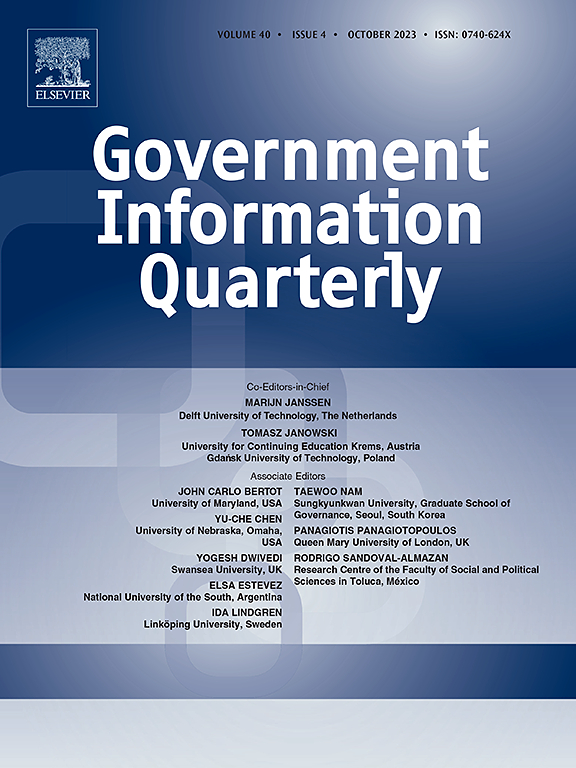Does trust in government moderate the perception towards deepfakes? Comparative perspectives from Asia on the risks of AI and misinformation for democracy
IF 10
1区 管理学
Q1 INFORMATION SCIENCE & LIBRARY SCIENCE
引用次数: 0
Abstract
There have recently been growing global concerns about misinformation, and more specifically about how deepfake technologies have been used to run disinformation campaigns. These concerns, in turn, have influenced people's perceptions of deepfakes, often associating them with threats to democracy and fostering less positive views. But does high trust in government mitigate these influences, thereby strengthening positive perceptions of deepfakes? In a cross-national survey conducted in Malaysia, Singapore, and India, we found no evidence of a negative association either between concern about the spread of misinformation online or perceived risks of AI to democracy, with positive attitudes towards deepfakes. However, when accounting for the moderating factor of trust in government, respondents in Singapore who have high trust levels exhibited more positive attitudes towards deepfakes, despite their concerns about misinformation. Similarly, higher trust in government correlated with more favorable perceptions of deepfakes even among those who view AI as a risk to democracy; this effect is evident across all three countries. In the conclusion, we spell out the implications of these findings for politics in Asia and beyond.
对政府的信任会缓和对深度假新闻的看法吗?从亚洲的比较视角看人工智能和错误信息对民主的风险
最近,全球对虚假信息的关注与日俱增,更具体地说,是对深度伪造技术如何被用于虚假信息宣传的关注与日俱增。这些担忧反过来又影响了人们对深度伪造技术的看法,往往将其与对民主的威胁联系在一起,助长了不太积极的观点。但是,对政府的高度信任是否会减轻这些影响,从而加强人们对深度假新闻的正面看法呢?在马来西亚、新加坡和印度进行的一项跨国调查中,我们没有发现任何证据表明,对网上错误信息传播的担忧或人工智能对民主的风险感知与对深度假新闻的积极态度之间存在负相关。然而,当考虑到对政府信任这一调节因素时,尽管新加坡的受访者对错误信息表示担忧,但信任度高的受访者对深度假新闻表现出更积极的态度。同样,即使在那些认为人工智能对民主构成风险的受访者中,对政府的较高信任度也与对深度假新闻的较好看法相关;这种效应在所有三个国家都很明显。在结论部分,我们阐述了这些发现对亚洲及其他地区政治的影响。
本文章由计算机程序翻译,如有差异,请以英文原文为准。
求助全文
约1分钟内获得全文
求助全文
来源期刊

Government Information Quarterly
INFORMATION SCIENCE & LIBRARY SCIENCE-
CiteScore
15.70
自引率
16.70%
发文量
106
期刊介绍:
Government Information Quarterly (GIQ) delves into the convergence of policy, information technology, government, and the public. It explores the impact of policies on government information flows, the role of technology in innovative government services, and the dynamic between citizens and governing bodies in the digital age. GIQ serves as a premier journal, disseminating high-quality research and insights that bridge the realms of policy, information technology, government, and public engagement.
 求助内容:
求助内容: 应助结果提醒方式:
应助结果提醒方式:


